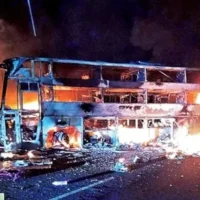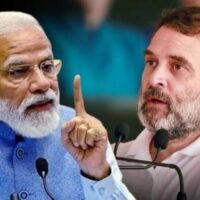In 1947, a young apprentice named Shankardas Kesarilal—later known to the world as Shailendra—worked at the Matunga railway workshop in Bombay. A gifted poet, he spent his spare time writing verses and reciting them at local mushairas. During one such event, his poignant poem ‘Jalta Hai Punjab’ caught the attention of emerging filmmaker Raj Kapoor. Although Kapoor offered to feature the poem in his debut film Aag, Shailendra, then affiliated with the left-leaning Indian People’s Theatre Association (IPTA), declined due to his skepticism towards commercial cinema. However, financial pressures following his wife’s pregnancy compelled him to return to Kapoor. At the time, Barsaat was in production and two songs were pending. For ₹500, Shailendra penned ‘Barsaat Mein’ and ‘Patli Kamar Hai’, both set to music by the then-rising duo Shankar–Jaikishan.
This marked the genesis of one of Hindi cinema’s most iconic creative alliances. The collaboration between Raj Kapoor, Shailendra, and Shankar–Jaikishan redefined the emotional and lyrical depth of post-independence Bollywood. Shailendra’s words resonated across generations—most famously in ‘Awara Hoon’, which found fans beyond India, notably in the Soviet Union and the Middle East. His lyrics for Shree 420, especially ‘Pyaar Hua Iqraar Hua’, became timeless classics. Though closely associated with Kapoor’s vision, Shailendra also lent his poetic genius to celebrated directors like Bimal Roy (Do Bigha Zameen, Madhumati, Bandini) and Vijay Anand (Guide, Kala Bazar), collaborating with music legends such as Salil Chowdhury, S.D. Burman, and Ravi Shankar.

Driven by creative ambition and loyalty, Shailendra turned producer in 1960, backing the film Teesri Kasam—starring Raj Kapoor and Waheeda Rehman, and directed by Basu Bhattacharya. Based on Phanishwar Nath Renu’s short story Maare Gaye Gulfam, the film is now hailed as a classic. Yet, it was a commercial disaster, pushing Shailendra into deep financial distress. According to renowned lyricist Javed Akhtar, Raj Kapoor’s repeated delays and failure to commit shooting dates significantly hampered the film’s progress. Akhtar controversially asserted that Kapoor’s actions directly contributed to Shailendra’s financial ruin and ultimately, his untimely death—adding a tragic note to a legacy built on lyrical brilliance.













